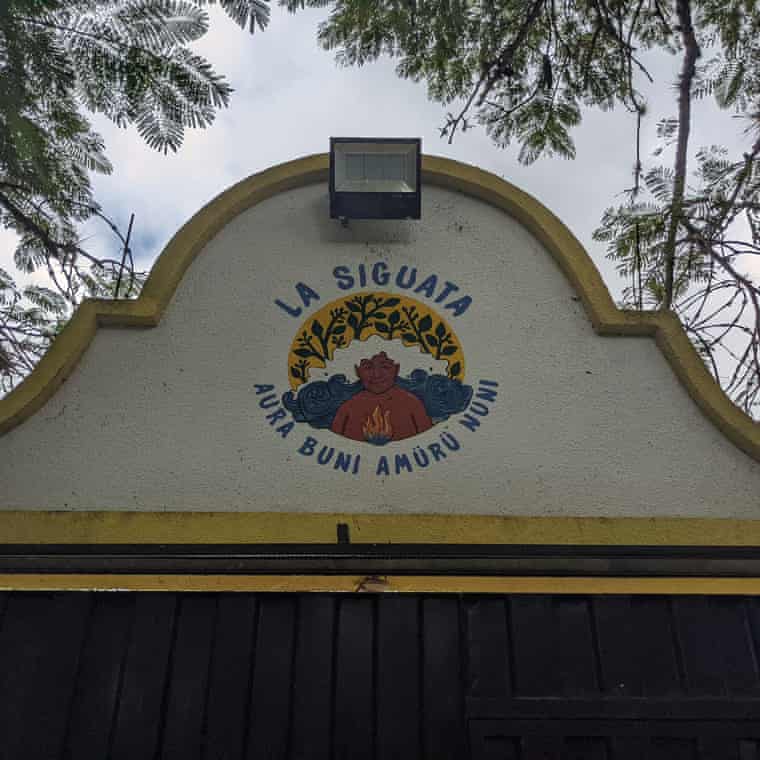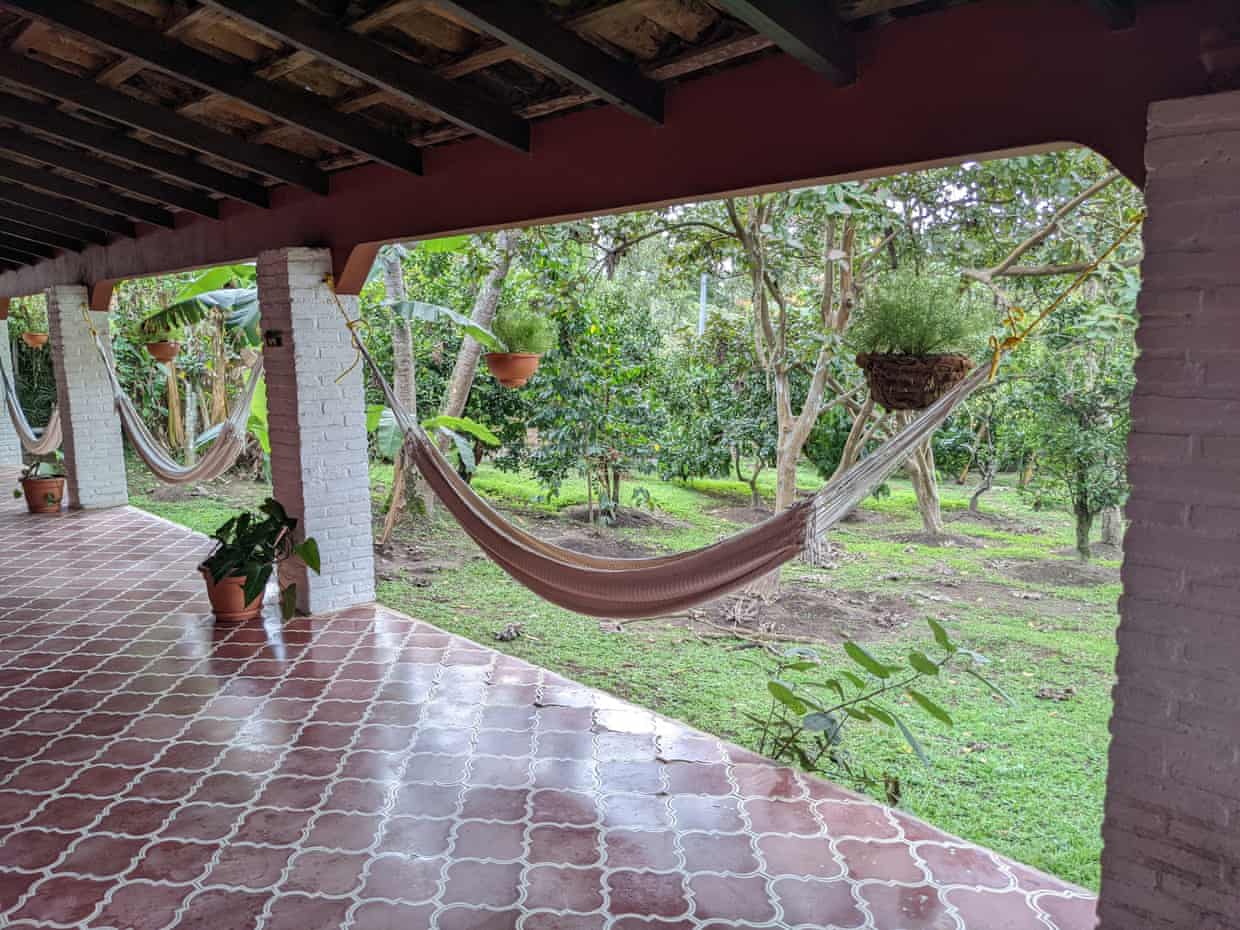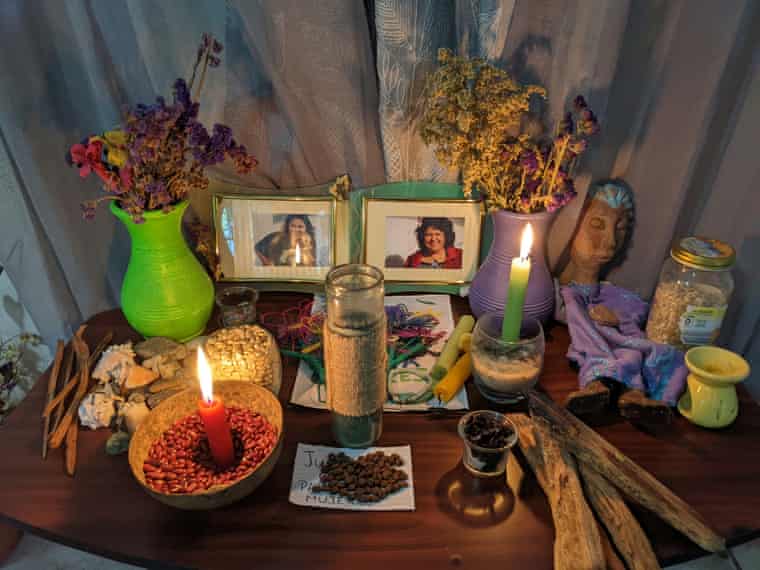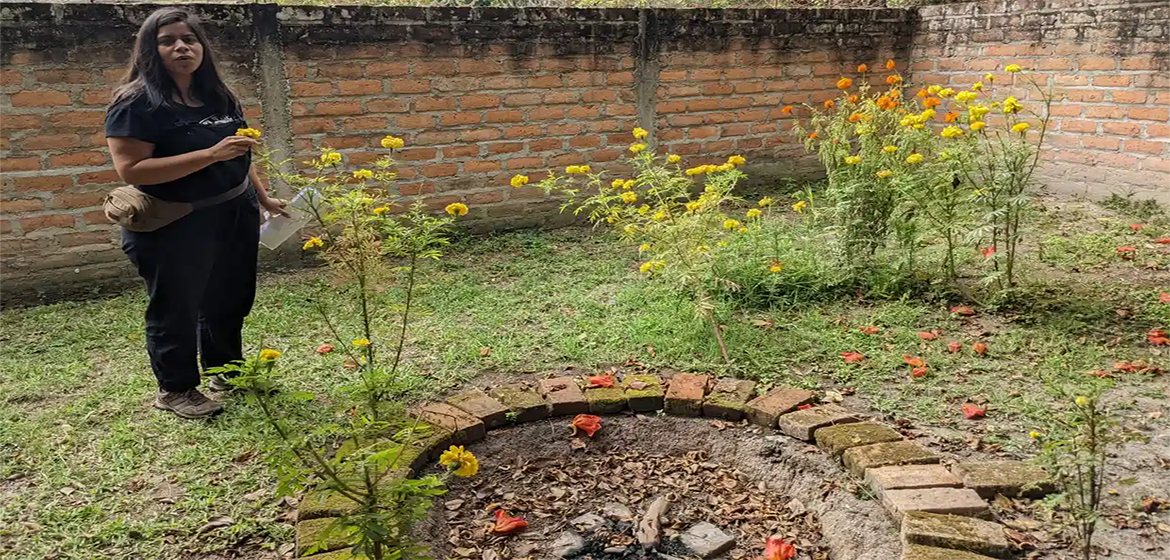By in Tegucigalpa
In one of the world’s most dangerous regions for environmental and human rights activists, La Siguata offers a safe space for women suffering trauma as a result of their work
A milky-white and sky-blue stone hangs from a red string around Ethels Correa’s neck, and every so often she rubs it between her fingers.
“When I feel anger, I grab this stone and I begin to relax, because they taught me how to breathe, to relax the body and to relax the mind,” she says. “I carry it with me all the time.”
Correa, 41, from the south coast of , is among a group on a visit to La Siguata, a healing centre for women like her who are suffering from trauma as a consequence of having stood up for human rights in the country.
“When I came here, I felt old, wrinkled,” says Correa, a mother of five who has been involved in land struggles in her home town, Zacate Grande, for two decades. But now, when she looks in the mirror, she sees a different reflection. “I look beautiful.”

The motto written above the entrance to La Siguata translates as ‘You for me, me for you.’ Photograph: Jeff Ernst
Inaugurated earlier this year, the 10-day retreat at La Siguata is part of a tiny but growing movement led by the , which funds this and another centre in Oaxaca, Mexico, addressing the mental health issues that come with working in one of the and women.
“We realised that there was lots of burnout and also strong impacts on women defenders as a result of structural violence, as well as patriarchal violence that was very invisible and normalised,” says Ana María Hernández of healing centre in Oaxaca, Mexico, which opened in 2016 and has since welcomed hundreds of women from across the region.
“The very demanding dynamics of women defenders’ activism means that we don’t have time to recover our energies, to connect with our bodies and needs. There is an imbalance between giving and receiving,” adds Hernández.
Since entering that gate, I felt connected, I felt like a protected woman. Ethels Correa
Hernández and colleagues from the Consortium for Parliamentary Dialogue and Equity in Oaxaca developed a holistic approach to help women overcome trauma and recharge, so they can continue their work with renewed vigour.
During their 10-day visits to the centres, women participate in activities from the artistic to the spiritual, in groups and individually, and are given a personalised self-care plan to take home.
La Siguata – which means “the woman” in the Uto-Aztecan Nahuatl language – sits behind high walls in the pine-covered mountains above the capital Tegucigalpa.
“Since entering that gate, I felt connected, I felt like a protected woman,” says Correa.
Solidarity is a guiding principle of the centre, encapsulated by a motto adopted from the Garifuna culture of the country’s north coast, painted over its entrance. It translates as “You for me, me for you.”

The grounds at La Siguata are a space where the women can relax and feel ‘protected’. Photograph: Jeff Ernst
The grounds of flowers and fruit trees provide a stark contrast to the concrete landscape of the city below. The women can relax in hammocks or gather around a firepit surrounded by marigolds.
“This space teaches us to love nature, to feel that energy of the earth and the air, which I had not experienced,” says Sandra Laínez, 63, a member of the Network of Domestic Workers, who were among the first group to visit La Siguata.

An altar with candles and flowers is dedicated to murdered Honduran . Photograph: Jeff Ernst
The centre has facilities for massage, bathing and acupuncture. “I arrived with a lot of body pain and I didn’t feel well,” says Correa, who has suffered a lot of violence over her life, including a blow to the head that she says she was lucky to survive. “If I’m sick, then I’m no good to the organisation.”
Inside the house are dormitories, a spacious kitchen where cooking lessons are held, and an altar with candles and flowers dedicated to , murdered after years of threats over her opposition to a dam project. It provides a poignant reminder of the hostility towards activists in Honduras, a nation with the of femicide in Latin America.
“In the midst of this struggle, we have lost our sisters and our comrades,” says Rebeca Girón, of the National Network of Human Rights Defenders, who runs La Siguata.
The centre is also open to survivors of sexual abuse and families of disappeared migrants. In the near future, it is hoped that women from Nicaragua – where the government has brutally repressed dissent, resulting in during the wave of protests in 2018 alone – will be able to visit.
“We know that these 10 days are not going to be the 10 days that will transform their lives, with sudden changes from one day to the next,” says Girón. “But we do consider that we open the way.
“La Siguata represents the recovery of that internal flame of passion, for wanting to live again and even to enjoy human rights work anew.”
Source:
Related to SDG 16: Peace, justice and strong institutions and SDG 10: Reduced inequalities



